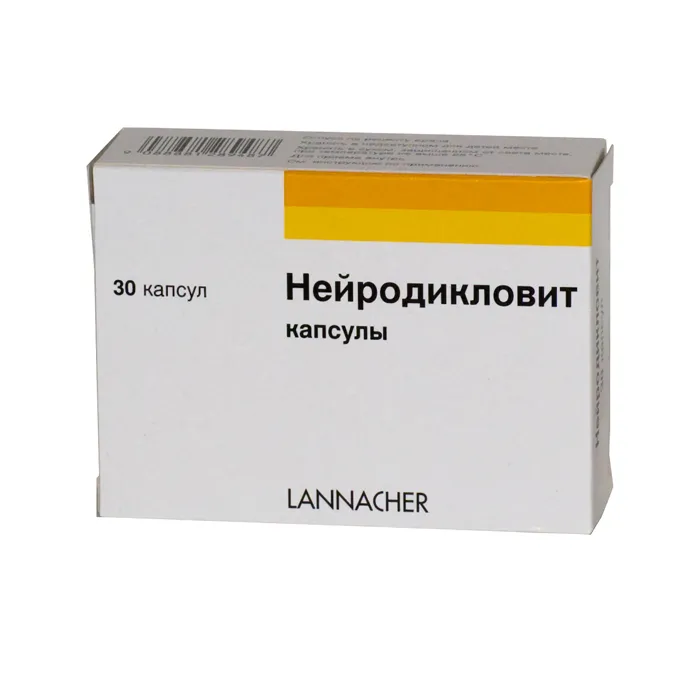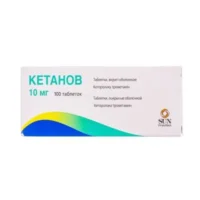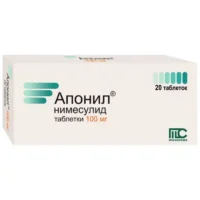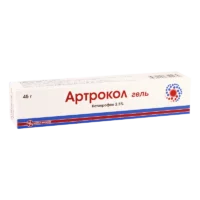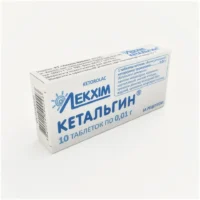Description
Neurodiklovit (Diclofenac Sodium, Vitamin B1, B6, B12) Capsules №30
Ingredients
- Active ingredients: Diclofenac sodium, Vitamin B1, Vitamin B6, Vitamin B12.
Dosage
- Recommended dosage: Take 1 capsule daily with food. Do not exceed the recommended dose.
Indications
- Neurodiklovit capsules are indicated for the relief of mild to moderate pain and inflammation associated with conditions such as arthritis, muscle aches, and menstrual cramps.
Contraindications
- Do not use Neurodiklovit capsules if:
- – You are allergic to any of the ingredients.
- – You have a history of gastrointestinal bleeding.
- – You are pregnant or breastfeeding.
Directions
- Take Neurodiklovit capsules as directed by your healthcare provider. Swallow the capsule whole with a full glass of water. Do not crush or chew the capsule.
Scientific Evidence
- Studies have shown that the combination of diclofenac sodium and B vitamins in Neurodiklovit capsules can provide effective pain relief and anti-inflammatory effects. Diclofenac sodium is a nonsteroidal anti-inflammatory drug (NSAID) that works by inhibiting the production of prostaglandins, which are chemicals in the body that cause pain and inflammation.
- Vitamin B1, B6, and B12 play a crucial role in nerve function and can help alleviate neuropathic pain. The synergistic effect of these ingredients in Neurodiklovit capsules makes it a potent option for managing various types of pain.
Additional Information
- Neurodiklovit capsules should be stored at room temperature away from moisture and heat. Keep out of reach of children. If you experience any adverse reactions, discontinue use and consult your healthcare provider.
- It is important to follow the recommended dosage and not exceed the daily limit to avoid potential side effects. Consult your doctor before starting any new medication, especially if you have underlying health conditions or are taking other medications.

